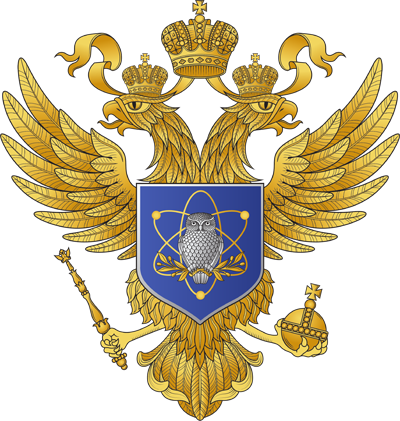Russia-India Round Table on Cooperation in Science & Technology
On March 26, Zelinsky Institute hosted a round-table meeting for discussing mechanisms of fostering the Russian-Indian cooperation in science and technology. The meeting was co-chaired by the Coordinator of the bilateral Integrated Long-Term Cooperation Program from Russia, RAS Associate Member N.E. Nifantiev (Head of ZIOC Laboratory of Glycoconjugate Chemistry) and Indian Deputy National Security AdvisorDr. Arvind Gupta who arrived to Russia on an official visit. The meeting was dedicated to the 70th anniversary of the establishment of diplomatic relations between Russia and India.
Russia and India have been longstanding partners in science and technology. The partnership started back in 1972 with signing of the Science and Technology Cooperation Agreement between the Soviet Union and the Republic of India. Since then, enhancing the cooperation in the R&D and innovation sphere has been of priority for both countries.
The bilateral Integrated Long-Term Program for Cooperation in Science and Technology (ILTP) was launched in 1987. The coordination has been implemented by the Russian-Indian S&T Working Group whiuch is one of the largest task forces under the auspices of the Russian-Indian Intergovernmental Commission.
New programs and projects on the basis of existing arrangements were initiated to further and deepen collaborative basic and applied research in various sciences and to facilitate commercialization of R&D results.
Scientific communities of the two countries have established strong relations and actively participate in competitions of research projects. R&D centers of Mumbai rank first by the number of implemented joint projects with Calcutta and Chennai to follow. The larger portion of joint projects in Russia falls at Moscow, Novosibirsk and Saint Petersburg. Totally, 64 Indian cities have scientific links with 31 cities in Russia.
More than 120 R&D centers in India and 140 institutions in Russia received grants for joint research projects in the framework of various cooperation programs. In India, these are primarily universities, technical schools, institutes under the Council of Scientific and Industrial Research, C-DAC, DRDO centers, and other institutions. In Russia, these are institutes of the Russian Academy of Sciences, universities and many other R&D centers, including business structures.
It should be pinpointed that ZIOC RAS was not a random choice for this event. Apart from ranking in the top of Russian scientific centers, Zelinsky Institute has long experience in collaborating with Indian scientists. Since ILTP signing, a lot of ZIOC researchers have been active participants in joint research efforts with their Indian peers. ZIOC RAS not once hosted bilateral symposia and other scientific events.
Co-chair, RAS Associate Member N.E. Nifantiev opened the round table meeting. He briefly characterized the current state and new activities of the bilateral cooperation under the ILTP, particularly in life sciences, including medical biological studies and glyco-science, which has recently got a priority status.
Co-chair Dr. Gupta began his welcome speech in Russian and expressed his unaffected pleasure to meet with Russian scientists again as he had lived in this country in 1981-84. He highlighted the significance of science for the society development at large and for all activities of the Indian Government, including economy, politics and geopolitics, social sphere, education, and national security. Dr. Gupta especially marked the necessity to bring results of basic research to practice. The longstanding India-Russia partnership in S&T is fundamental for successful progressing in this direction. Both countries seek to expand and deepen the cooperation and the key role here belongs to the unique and multi-facet 25-year ILTP.
Next, well-known Russian scientists from RAS institutes, universities and R&D centers shared their findings, experience and impressions from their work under the ILTP. According to RAS Full Members A.D. Gvishiani and Yu.V. Gulyaev, ongoing restructuring of the Russian Academy of Sciences has adversely told on performance of the Russian-Indian S&T cooperation due to lacking earmarked financing of the Program.
Current grant-based programs, first and foremost funded by RFBR, and, to a lesser degree, those supported by RSF and the RF Ministry of Education and Science, are able to meet the cooperation needs to a small extent and do not allow furthering of new large-scale areas of bilateral research, for example in crucial fields such as geophysics, radio electronics, design of new submersible vehicles for offshore surveys, and so on. This was also marked by S.V. Sukonkin, Head of the Russian-Indian S&T Center.
Plans and concerns related with support of bilateral Russian-Indian projects were further on outlined in the speeches of A.V. Usoltsev (RFBR), S.B. Konovalov (RSF), O.G. Levchenko (Foundation of Support to Innovations), N.V. Ponomarenko (RF Ministry of Economic Development), and O.E. Glukhovtsev and N.N. Kharitonov (RAS Presidium, Foreign Relations). This information aroused much interest of representatives of RAS institutes and universities though some pessimism was felt regrading a lack of speed in implementing the plans and rather long approval procedures.
Also, it was worth to mention some technical issues in coordinating bilateral researches, namely a difference in the time of the beginning of project financing in Russia and India.
By the end of the day, the participants discussed new potential areas of bilateral research to include glyco-science, new approaches to drug and vaccine design, information and cybersecurity technologies, new technologies in the energy sector, and other priorities of the BRICS scientific programs.
Also, the participants emphasized a need to encourage educational and students’ exchange projects, including under the GIAN programs and other initiatives of the Indian Government.
The official meeting was followed by vibrant socializing and viewing of the exciting exposition of unique documents associated with the Russian-Indian science and technology cooperation prepared by the RAS Archive.
9.jpg)

